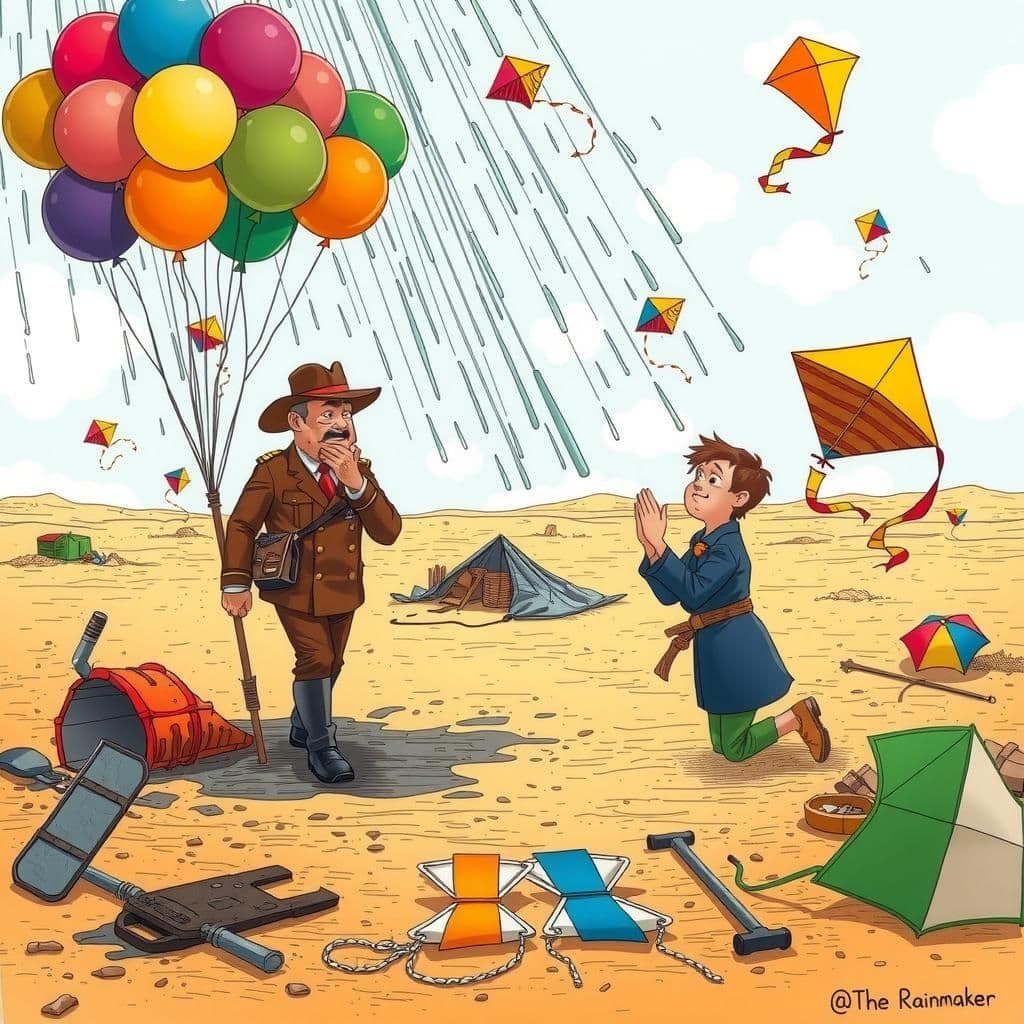The Rainmaker
In "The Rainmaker," a Government Officer embarks on an elaborate mission to induce rain in a decade-long drought using balloons, kites, and explosives, ultimately leading to his downfall. The only survivor, Ezekiel Thrifft, a mule-driver who is revealed to be a minister working for the equipment supplier, humorously claims his prayers brought the rain, highlighting the absurdity of the situation. This short moral tale contrasts the seriousness of the rain-seeking endeavor with the unexpected truth, serving as a fable that reminds us of the often overlooked roles played in grand narratives.

Reveal Moral
"The story illustrates that true humility and belief can yield unexpected blessings, even in seemingly absurd circumstances."
You May Also Like

The Return of the Representative
In "The Return of the Representative," a group of disgruntled citizens from an Assembly District, reminiscent of famous fables with moral lessons, convene to decide extreme punishments for their absent representative, contemplating disembowelment and hanging. Their plans take an unexpected turn when the representative arrives in a celebratory coach, greeted by a brass band, declaring it the proudest moment of his life, much to the dismay of the crowd. This classic moral story highlights the irony of public sentiment and the disconnect between representatives and their constituents.

Six and One
In "Six and One," a Committee on Gerrymander, consisting of six Republicans and one Democrat, loses a poker game, leading to the Democrat winning all the money. The next day, a disgruntled Republican accuses the Democrat of cheating, claiming that disasters always occur when the minority is dealing, suggesting the cards were manipulated. This short and sweet moral story highlights the absurdity of blame and the lessons of fairness, making it a heartwarming tale for kids about integrity and accountability.

The Doe and the Lion
In "The Doe and the Lion," a doe fleeing hunters discovers a life-changing truth as she seeks refuge in a lion's cave, only to be attacked and killed by the very beast she thought would save her. This poignant tale serves as a cautionary reminder for young readers that in avoiding one danger, one must be wary of falling into a greater peril. Through folklore and moral stories like this, we learn valuable lessons for personal growth and the importance of careful decision-making in life.
Quick Facts
- Age Group
- adultkidschildrenstory for class 5story for class 6story for class 7story for class 8
- Theme
- faithironyhuman ingenuity
- Characters
- Officer of the GovernmentNewspaper ReporterSole Survivormule-driverRev. Ezekiel ThrifftGodProvidence
Subscribe to Daily Stories
Get a new moral story in your inbox every day.